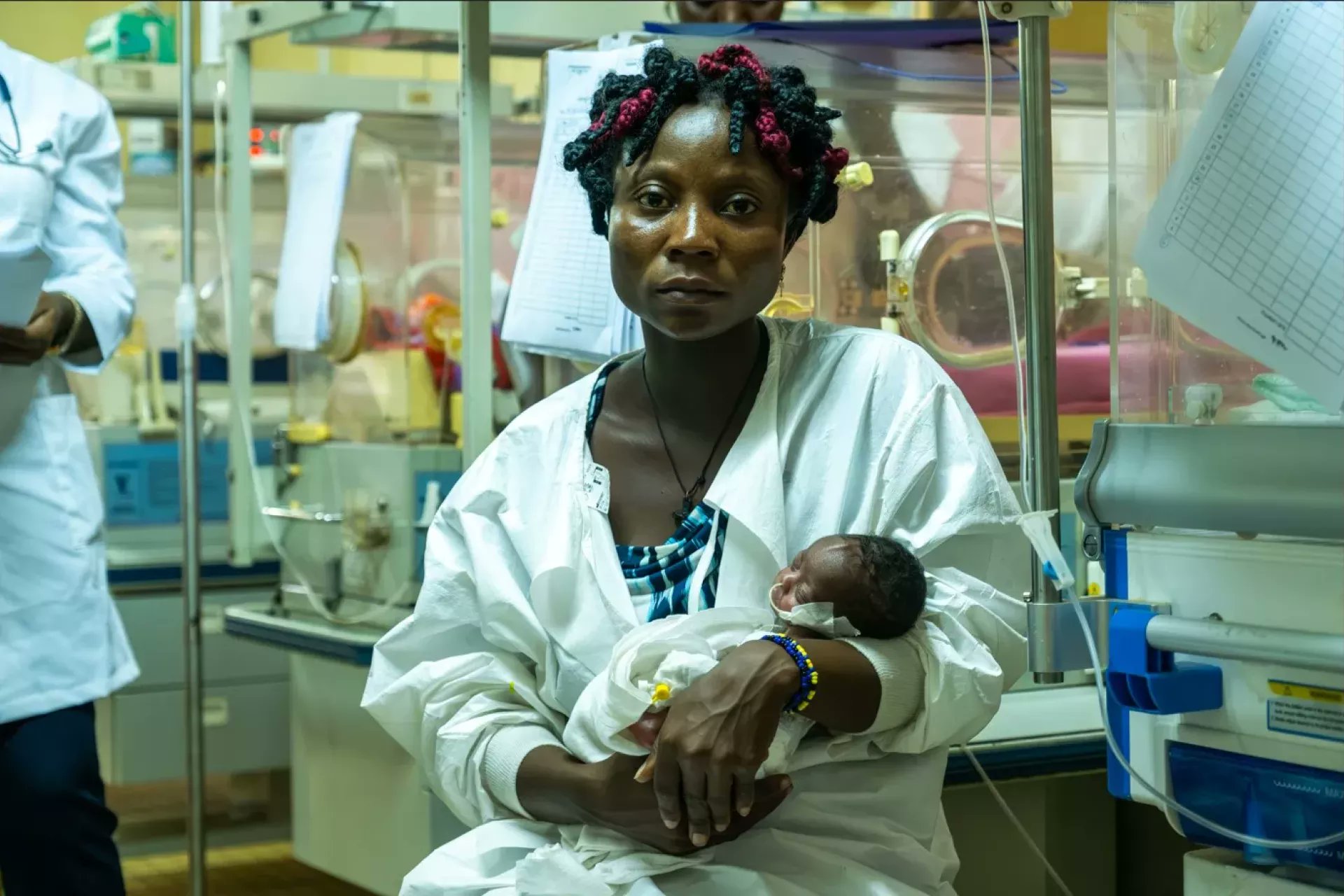Nigeria Records World's Highest Maternal Death Rate Amid Insurgency, Funding Cuts
Posted 04:35 PM, Tuesday August 26, 2025 3 min(s) read

Photo by: Emmanuel Onminyi
MAIDUGURI, Aug. 25 (AGCNewsNet) –- Women in northeast Nigeria face some of the world's deadliest odds during childbirth as years of Boko Haram insurgency have devastated health systems, while aid cuts and growing insecurity leave expectant mothers with limited access to medical care.
Nigeria recorded at least 75,000 maternal deaths in 2023 — more than a quarter of the global total, according to the World Health Organization. At least one in every 100 Nigerian women dies during childbirth, making it the deadliest country in the world to give birth, according to WHO data.
The crisis is particularly acute in Borno State, where Boko Haram militants continue near-daily attacks, clinics have been destroyed, and many towns have become heavily militarized "garrison towns," health officials said.
"A lack of good hospitals is our problem, as well as a lack of workers, medication and doctors that can treat us," said Aisha Muhammed, a mother of twins from Konduga. "A lack of access to the road from Konduga to Maiduguri in the night time to visit the hospital is also a problem."
The humanitarian crisis has been exacerbated by the withdrawal of hundreds of millions of dollars in U.S. foreign aid and the Nigerian government's decision to slash family planning budgets by 97% in 2025, according to health workers.
"The reproductive health needs for women and girls is very critical, especially in deep field locations," said Dr. Fanya Fwachabe, Sexual and Reproductive Health Manager at the International Rescue Committee. "People in these areas find it difficult to access services because they're either out of reach or located in militarized areas."
For women like Falmata Muhammed, who lost a baby while trying to reach Maiduguri for care in 2021, the stakes remain life-threatening. Now pregnant again, she lives in a town where the only hospital was burned down by militants in 2020 and replaced by a mobile clinic ill-equipped for childbirth, according to local health officials.
Health workers warn that without urgent funding, the already dire situation will deteriorate further, according to medical personnel in the region.
The region, already scarred by more than a decade of insurgency, now grapples with collapsing health infrastructure, dwindling international aid, and persistent insecurity that cuts off access to the limited medical facilities that remain operational.
With insecurity limiting movement and resources continuing to dwindle, the prospects for safe motherhood in northeast Nigeria remain bleak, according to humanitarian organizations operating in the area.
Stay connected with AGC NewsNet for the latest news from Africa.